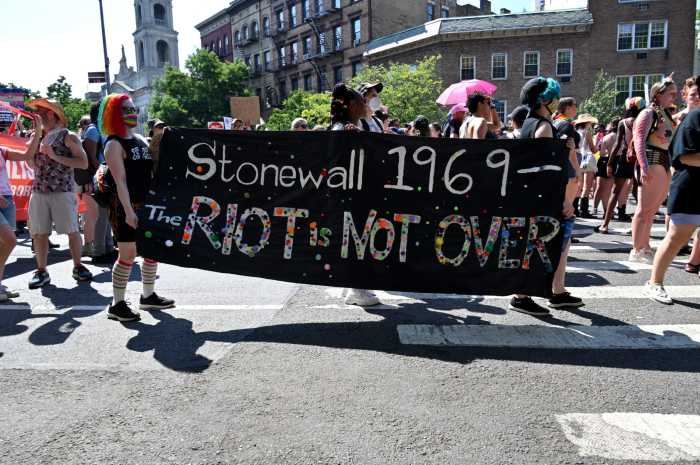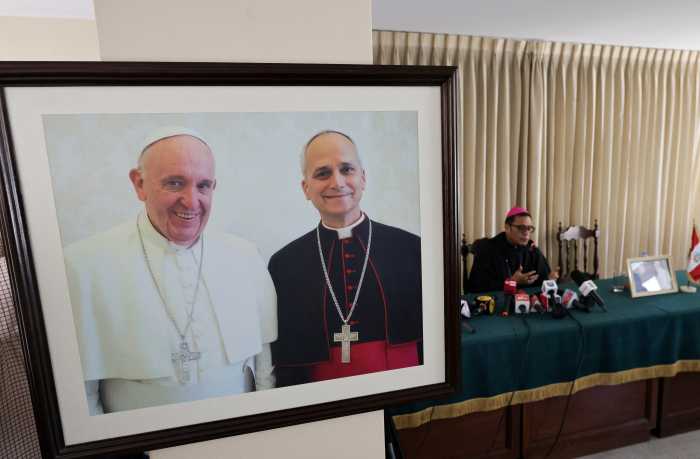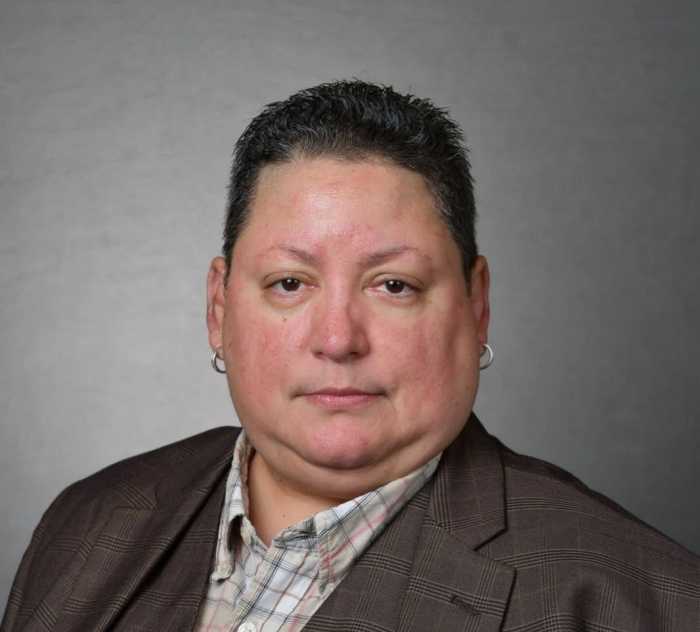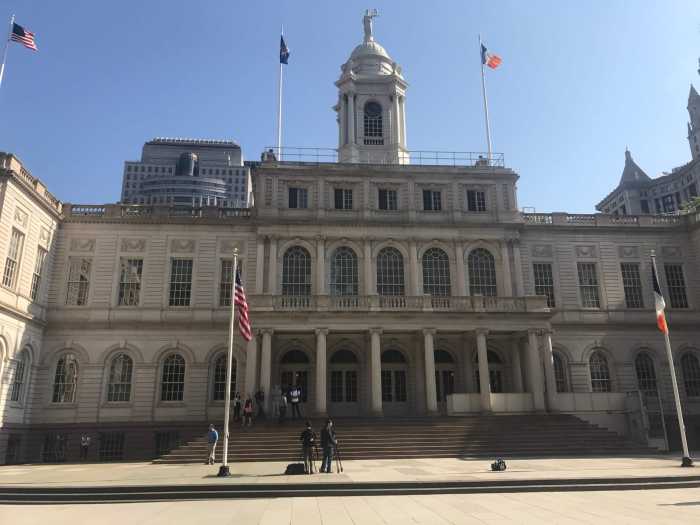A November 18 ruling from a unanimous three-judge panel of the US Second Circuit Court of Appeals continued a nearly three-year pattern in which elected officials, law enforcement authorities, and now the federal courts have responded both shamefully and facetiously to clear evidence that the New York City Police Department engaged in a witch hunt against gay men in adult video stores, arresting them on false charges of prostitution as pretext for bringing legal action against the establishments themselves.
The stories first emerged in late 2008 when Robert Pinter, who was 52 at the time he was arrested in an East Village porn shop, contacted Gay City News with an extraordinary tale of being approached by an attractive and significantly younger man, with whom he discussed leaving the premises to engage in consensual sexual conduct.
As they got to the door, the younger man, who turned out to be an undercover cop, said he would pay Pinter $50 for the privilege of performing oral sex on him. The comment raised a red flag for Pinter, who later testified that any chance he would have sex with this now seemingly dubious young man “was over.” Still, he left the store with the undercover and was promptly arrested for prostitution.
In the months that followed Pinter coming forward, Gay City News identified more than 40 men who had recently been arrested on prostitution charges at video stores and spas by a small group of officers working out of the Manhattan South Vice Enforcement Squad. A good number of those men were also middle-aged; two were German tourists in town on vacation and staying at an expensive Midtown hotel.
The City Law Department, the Mayor’s Office of Special Enforcement, and the NYPD’s legal unit cited these arrests in a series of nuisance abatement suits seeking closure of the video stores and spas.
Six of those arrested, including Pinter, sued the city, all but one in federal court.
The Second Circuit ruling last month threw out a district court decision that had denied the city summary judgment regarding Pinter’s false arrest and malicious prosecution charges. While conceding that the cop could have “been more explicit in ascertaining whether Pinter was truly relying on financial remuneration in return for allowing the undercover officer to perform oral sex on him… in view of the totality of the circumstances, even as seen in the light most favorable to Pinter, we hold that defendants acted reasonably –– that is, not incompetently or in knowing violation of the law –– in arresting Pinter.”
This astounding conclusion is troubling in two critical respects. First, if the undercover wasn’t acting improperly, why was he the one to raise the question of compensation in a conversation that up to that point had been about consensual sexual fun?
Second, although there is a Fourth Amendment, this ruling means that if a police officer suggests illegal behavior, in order to avoid arrest it is the citizen’s obligation to explicitly tell that officer that they do not have probable cause for arrest in connection with that conduct. We are presumed guilty unless we announce our innocence out loud.
That is an outrageous assertion.
Unfortunately, it follows a pattern of official disregard for the basic rights of gay men when the situation involves anything sexual.
When initially questioned about the pattern of arrests, the NYPD stated, “The fact remains that the locations had become notorious for solicitation of sex acts,” as though that had anything to do with any one individual’s conduct.
Later, after an Internal Affairs Bureau investigation of the arrests, the police department’s legal unit expressed agnosticism over using entrapment, saying it “recommends the suggestion of money come from the defendant. There are no department standards regarding entrapment. The Department prefers to avoid entrapment but it is not a set policy.”
Despite the use that the City Law Department and his Office of Special Enforcement put the prostitution arrests to in their nuisance abatement suits, Mayor Michael Bloomberg stayed even further away from any serious engagement on the issue.
In April 2009, he said, “I’ve heard that people are worried about it, have concerns about it,” but then passed the buck to the NYPD. “It’s normal practice in the police department,” he said.
In an interview in October of that year, Bloomberg more or less shrugged the issue off, saying he had discussed it with Police Commissioner Raymond Kelly, and thought he might be “doing an investigation,” with which the mayor did not want to interfere.
The actions by Manhattan District Attorney Cyrus Vance, who campaigned for the job in 2009 voicing sympathy for what Pinter endured –– “I’m having trouble believing that Cy at 54 is beginning to turn tricks,” he said he would tell police if he saw such an arrest pattern –– are no more satisfying.
In a confusing series of filings last year in response to discovery requests made by the gay men suing the city, Vance’s office failed to offer convincing evidence that a thorough investigation, promised by his predecessor, had been carried out. The filings spoke of two “parallel investigations,” but produced no evidence that police officers were interviewed.
The DA’s office suggested it “would be grossly misleading [for Gay City News] to consider in isolation a response to a civil document request” when evaluating whether a true investigation had occurred, but it also stated, “The investigation did not target any uncharged individuals for potential prosecution,” which certainly sounds like only the original prostitution defendants –– and none of the vice cops –– were probed.
All of which suggests that even as we gain the right to marry and are applauded in our determination to raise children and fight in Afghanistan, we still remain sexually suspect.
Thank God for a guy like Robert Pinter. He won’t go away quietly. On December 2, his attorneys filed a motion on a rehearing “en banc,” which would involve all of the judges in the Second Circuit reviewing the decision that came out on November 18.
The underlying issue is the simple question of whether basic constitutional protections in fact follow all of us throughout our days, even if we drop into a store the city is eager to shut down.


































